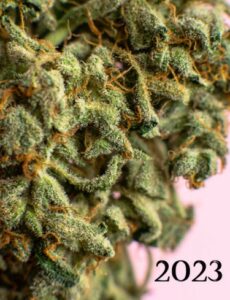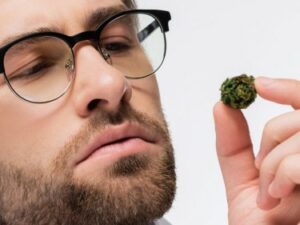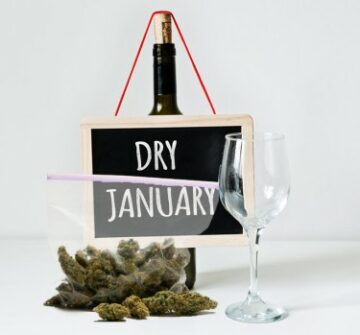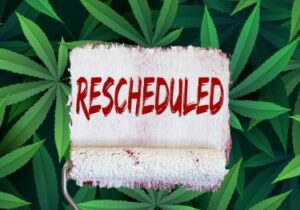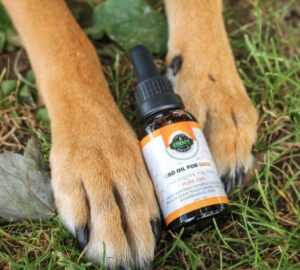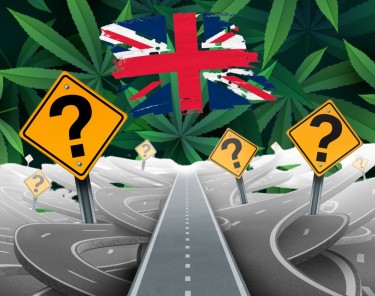
A "hot mess" characterizes the implementation of legal and regulatory frameworks within the UK's CBD market, valued at $850 million (£690 million/€798 million), according to claims by a prominent stakeholder group in a recently published white paper.
The Association for the Cannabinoid Industry (ACI) asserts that the process of introducing CBD products to the market via the Food Standards Agency (FSA) has been prolonged, marked by reversals, and executed without apparent coordination among the responsible authorities.
The ACI urges officials to address prevailing ambiguities promptly and to expedite the integration of specific provisions into the law by April 2024.
The white paper initially tackles the concept of "approved daily intake" (ADI) for CBD in light of contentious updated regulations issued by the Advisory Council on The Misuse of Drugs (ACMD) in October. The ACMD determined that based on the average lifetime exposure to CBD-containing food products, healthy adults should limit their daily consumption of CBD in food or beverages to 10 milligrams—an amount equivalent to four or five drops of 5% CBD oil.
Contrary to this recommendation, some industry representatives argue that the average daily CBD dose needed for a discernible well-being or medical effect ranges between 60 and 120 milligrams. Notably, they point out that the approved medical-grade CBD product, Epidiolex, is administered to children at even higher levels.
The European Industrial Hemp Association (EIHA) has proposed a daily CBD dosage of 17.5 milligrams to the European Food Safety Authority. In the UK, the significantly lower ACMD recommendation is attributed to guidance from key government committees, which highlight potential risks of liver damage or thyroid issues associated with the long-term use of CBD.
Market Threat
Concerns have been raised by stakeholders that the 10-milligram limit could have a significant negative impact on the entire UK CBD industry, causing confusion among consumers and eroding investor confidence.
The Home Office, regardless of the established limit, is urged by the ACI to promptly seek ministerial approval for the implementation of an approved daily intake for CBD.
The white paper suggests, "The ACI recommends urgent evaluation of additional data supporting consumption guidelines and advocates regular online updates on ADI, even if it is to reaffirm the current precautionary advice to consumers of up to 10 milligrams per day for long-term use."
ACI further recommends that the FSA’s Advisory Committee on Novel Foods and Committee on Toxicity of Chemicals in Food, Consumer Products, and the Environment "should assess additional data supporting the new provisional ADI for CBD, considering potential revisions to the precautionary advice."
Maximum THC Levels
In a significant development, the Home Office, in late October, endorsed the Advisory Council on The Misuse of Drugs (ACMD) recommendation to update legislation, allowing CBD ingestible to legally contain up to 50 micrograms of controlled cannabinoids, including medical THC, per unit of consumption or serving.
While the ACI acknowledged the 50-microgram limit as "a justifiable recommendation," the association emphasized that the Home Office should correlate this limit with a maximum total daily intake for controlled cannabinoids, rather than focusing solely on per serving or unit of consumption.
The FSA is currently in the process of evaluating approximately 12,000 CBD products under the regulations for new or "novel" foods. ACI urged the food safety body to prioritize the assessment of applications supporting CBD products with purity levels exceeding 98%, citing their enhanced safety profile. The scientific data from these applications, according to ACI, will provide crucial evidence supporting an average daily intake surpassing the current levels.
In January 2019, CBD extracts were classified as "novel food" in the UK, requiring approval before legal sale. Despite the presence of various CBD products on the gray market for several years, including drops, supplements, and beverages, none have received official novel foods approval. Some products, however, were allowed to remain on the market under liberal rules while awaiting safety checks.
For products to remain on the market during the approval process, those already in distribution had to be on sale before February 13, 2020. Products introduced after this date were ineligible for the agency's consideration.
Approval Process Delays
In early 2022, the FSA experienced a surge in CBD applications following stakeholder complaints about the review process determining the singular opportunity for producers to legalize their gray-market products. In response, the agency extended the application window by a full year, resulting in a substantial increase in the number of products under review, soaring from approximately 3,500 to over 12,000.
Among the 12,000 applications, around 5,000 are in the initial "validated" stage of the FSA's review, while 6,000 have progressed to the second stage, where they undergo safety assessments. Over 400 products have been excluded from consideration and prohibited from the market.
Although the FSA initially anticipated the full authorization of the first CBD products by the latter half of 2023, this expectation did not materialize.
Industry Uncertainty Deepens Amidst Controversial CBD Consumption Guidelines
The controversy surrounding CBD consumption guidelines intensifies as stakeholders express growing concerns over the recommended 10-milligram daily limit set by the Advisory Council on The Misuse of Drugs (ACMD). Industry leaders argue that this limit could significantly impact the entire UK CBD sector, leading to confusion among consumers and undermining investor confidence. The Association for the Cannabinoid Industry (ACI) urges swift action, calling for a comprehensive evaluation of additional data to provide clearer insights into optimal CBD consumption. The ACI further advocates for regular online updates on approved daily intake (ADI), emphasizing the need for transparency in communicating evolving guidelines to consumers, even if it means reiterating the existing precautionary advice.
Bottom Line
In conclusion, the UK's CBD industry faces unprecedented challenges as regulatory uncertainties cast a shadow over its multi-million-dollar market. The disarray in legal and regulatory frameworks, coupled with controversial consumption guidelines and THC limits, has created a landscape of ambiguity for industry players. Stakeholders, led by the Association for the Cannabinoid Industry (ACI), call for urgent actions to address ambiguities, expedite legal provisions, and provide clarity on CBD consumption guidelines. The endorsement of updated THC limits by the Home Office adds another layer of complexity, necessitating a delicate balance between legal compliance and industry viability. As the Food Standards Agency (FSA) grapples with the evaluation of thousands of CBD products, the industry's future remains uncertain. The prolonged approval process and delayed authorization of CBD products raise concerns about the market's stability. Amidst these challenges, the industry must adapt, collaborate, and actively engage with regulatory bodies to ensure a balanced and thriving CBD market in the UK.
THE UK CBD RESTRICTIONS KICK IN, READ MORE...
THE UK SAYS TO LIMIT CBD TO 10 MG A DAY IN FOOD INTAKE?
- SEO Powered Content & PR Distribution. Get Amplified Today.
- PlatoData.Network Vertical Generative Ai. Empower Yourself. Access Here.
- PlatoAiStream. Web3 Intelligence. Knowledge Amplified. Access Here.
- PlatoESG. Carbon, CleanTech, Energy, Environment, Solar, Waste Management. Access Here.
- PlatoHealth. Biotech and Clinical Trials Intelligence. Access Here.
- Source: http://cannabis.net/blog/news/the-850-million-uk-cbd-market-is-a-hot-mess-how-did-they-get-here-and-how-do-you-fix-it
- :has
- :is
- :not
- :where
- $UP
- 000
- 10
- 12
- 120
- 13
- 17
- 2019
- 2020
- 2022
- 2023
- 2024
- 400
- 50
- 500
- 60
- a
- About
- According
- acknowledged
- Action
- actions
- actively
- adapt
- Additional
- address
- Adds
- administered
- advice
- advisory
- advocates
- After
- agency
- allowed
- Allowing
- already
- Ambiguity
- amidst
- among
- amount
- an
- and
- Another
- Anticipated
- apparent
- Application
- applications
- approval
- approved
- approximately
- April
- April 2024
- ARE
- argue
- around
- AS
- assess
- assessment
- assessments
- associated
- Association
- At
- Authorities
- authority
- authorization
- average
- awaiting
- Balance
- Balanced
- based
- BE
- been
- before
- between
- Beverages
- bodies
- body
- by
- call
- calling
- Cannabinoid
- causing
- cbd
- CBD Industry
- CBD market
- CBD oil
- cbd products
- challenges
- characterizes
- Checks
- chemicals
- Children
- citing
- claims
- clarity
- classified
- clearer
- collaborate
- committee
- communicating
- complaints
- complexity
- compliance
- comprehensive
- concept
- Concerns
- conclusion
- confidence
- confusion
- consideration
- considering
- consumer
- Consumer products
- Consumers
- consumption
- contain
- controlled
- controversial
- controversy
- coordination
- could
- Council
- coupled
- created
- crucial
- Current
- Currently
- daily
- damage
- data
- Date
- day
- deepens
- Delayed
- Despite
- determined
- determining
- Development
- DID
- distribution
- do
- dosage
- dose
- Drops
- Drugs
- during
- Early
- effect
- emphasized
- emphasizing
- endorsed
- Endorsement..
- engage
- enhanced
- ensure
- Entire
- Environment
- Equivalent
- established
- Ether (ETH)
- European
- evaluating
- evaluation
- Even
- evidence
- evolving
- excluded
- executed
- existing
- expectation
- expedite
- experienced
- Exposure
- express
- extended
- Extracts
- faces
- February
- First
- Fix
- focusing
- following
- food
- foods
- For
- four
- frameworks
- from
- FSA
- full
- further
- future
- get
- Government
- gray
- Group
- Growing
- guidance
- guidelines
- had
- Half
- Have
- healthy
- Hemp
- here
- higher
- Highlight
- Home
- Home Office
- HOT
- How
- However
- HTTPS
- if
- Impact
- implementation
- in
- Including
- Increase
- industrial
- industry
- initial
- initially
- insights
- integration
- Intensifies
- into
- introduced
- introducing
- investor
- Issued
- issues
- IT
- ITS
- January
- jpg
- Key
- kick
- landscape
- Late
- Law
- layer
- leaders
- leading
- Led
- Legal
- legalize
- legally
- Legislation
- levels
- lifetime
- light
- LIMIT
- limits
- Liver
- long-term
- lower
- marked
- Market
- materialize
- maximum
- means
- medical
- million
- misuse
- more
- must
- Need
- needed
- negative
- New
- None
- notably
- novel
- novel food
- number
- october
- of
- Office
- official
- officials
- Oil
- on
- online
- Opportunity
- optimal
- or
- out
- over
- Paper
- per
- plato
- Plato Data Intelligence
- PlatoData
- players
- Point
- potential
- presence
- Prioritize
- problems
- process
- Producers
- Product
- Products
- Profile
- progressed
- prohibited
- prominent
- proposed
- provide
- provisional
- published
- raise
- raised
- ranges
- rather
- Read
- reaffirm
- received
- recently
- Recommendation
- recommended
- recommends
- Regardless
- regular
- regulations
- regulatory
- reiterating
- remain
- remains
- Representatives
- response
- responsible
- restrictions
- resulting
- review
- revisions
- risks
- rules
- s
- Safety
- sale
- says
- scientific
- Second
- sector
- Seek
- serving
- set
- several
- Shadow
- should
- significant
- significantly
- singular
- soaring
- solely
- some
- specific
- Stability
- Stage
- stakeholder
- stakeholders
- standards
- substantial
- Suggests
- supplements
- Supporting
- surge
- surpassing
- Surrounding
- SWIFT
- Tackles
- than
- that
- THC
- The
- the Law
- the UK
- their
- These
- they
- this
- those
- thousands
- thriving
- to
- Total
- Transparency
- Uk
- Uncertain
- uncertainties
- Uncertainty
- under
- undergo
- unit
- unprecedented
- Update
- updated
- Updates
- urgent
- urges
- use
- validated
- valued
- various
- via
- viability
- were
- which
- while
- white
- white paper
- will
- window
- with
- within
- without
- year
- years
- you
- zephyrnet




